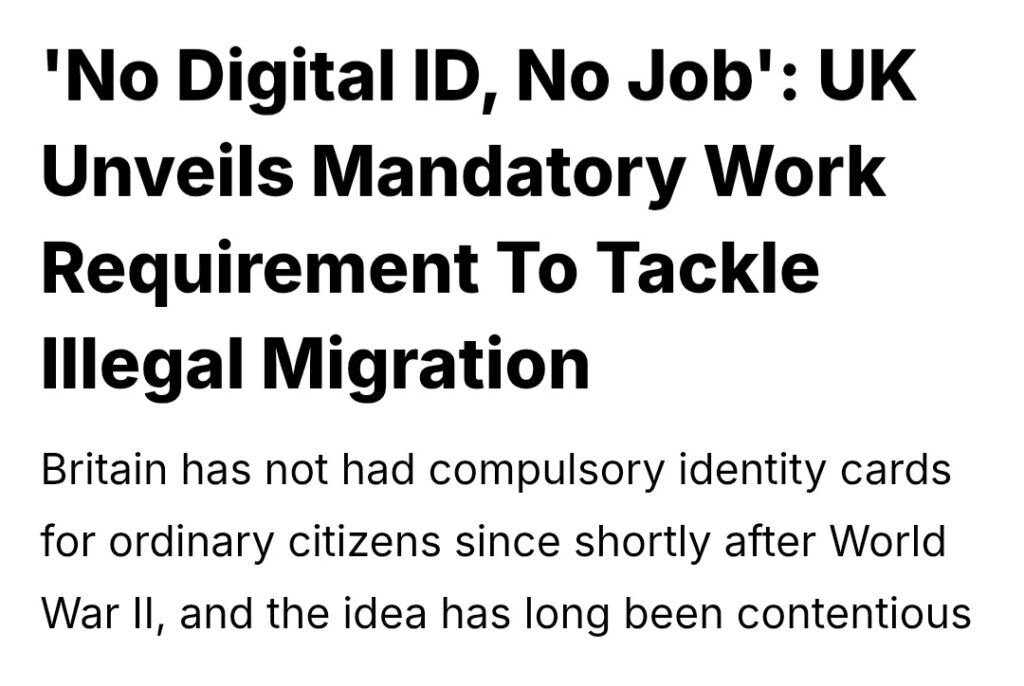
LONDON. 27th. Sept. 2025. UK Prime Minister Keir Starmer has announced that British citizens and permanent residents will have to produce a mandatory digital identification card in order to get work, reviving a contentious idea in an effort to show that the government has control of the country’s borders.
Prime Minister Starmer made the announcement during an international meeting of centre-left politicians in London. He said the new ID system will be in place before the next election, due by 2029.
The government said the plan will help reduce unauthorised immigration by making it harder for people to work in the underground economy. It said it will also make it simpler for people to access health care, welfare, child care and other public services.
Britain has not had compulsory identity cards for ordinary citizens since shortly after World War II, and the idea has long been contentious, with civil rights campaigners arguing it infringes personal liberty and puts people’s information at risk.
The government says the plan will help reduce unauthorised immigration by making it harder for people to work in the underground economy. It says it will also make it simpler for people to access health care, welfare, child care and other public services.
“You will not be able to work in the United Kingdom if you do not have a digital ID. It’s as simple as that,” Starmer told an international meeting of center-left politicians in London. He said the new ID system would be in place before the next election, due by 2029.
Britain has not had compulsory identity cards for ordinary citizens since shortly after World War II, and the idea has long been contentious, with civil rights campaigners arguing it infringes personal liberty and puts people’s information at risk.
Former Prime Minister Tony Blair tried to introduce biometric ID cards two decades ago as a way of fighting terrorism and fraud, but the plan was abandoned after strong opposition from the public and Parliament.
“There’s always been this feeling that Britain is not a so-called ‘Papers, please’ society, in contrast to continental Europe and other countries where ID cards are very common,” said Tim Bale, professor of politics at Queen Mary University of London.
“It has to be said, however, that given one is forced in some ways to prove one’s ID in myriad circumstances, both in contact with the government and in contact with the private sector in all sorts of ways, that actually a digital ID card would be quite useful.”
Starmer said people would not have to carry their ID or be asked to produce it, but it will be mandatory to get a job.

